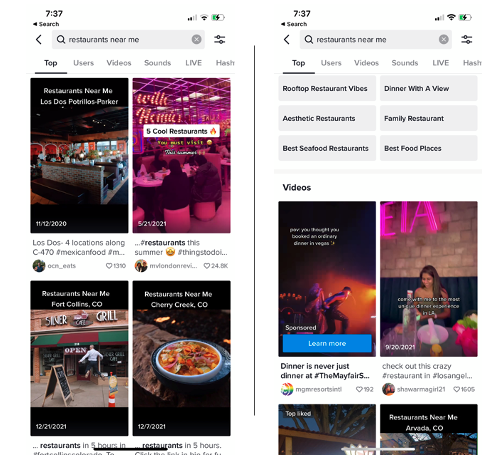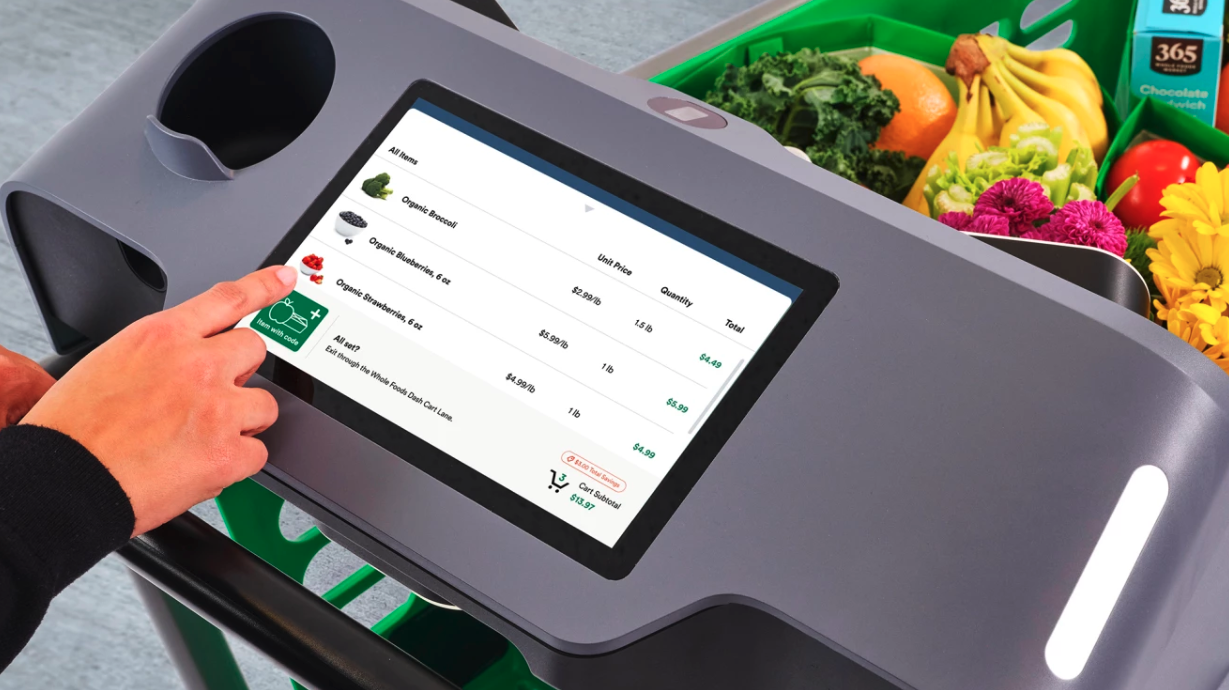Zoomers: No Maps, Dash Cart, Location Data Abuse

Google: 40% of Zoomers Shun Search, Maps
Speaking at a recent conference, Google SVP Prabhakar Raghavan made a casual remark. "In our studies, something like almost 40% of young people, when they’re looking for a place for lunch, they don’t go to Google Maps or Search ... They go to TikTok or Instagram." He added that younger users are interested in more "visually rich forms of search and discovery." There are nearly 2.5 billion members of Gen Z globally, more than Millennials or Boomers. Google's insights appear to be partly driving Google's aggressive push into visual search. Indeed, at Google's annual ad-products event, Google VP Jerry Dischler said, "We're transforming the SERP into an endless stream of visual ideas." The finding that 40% younger users are shunning Google Search and/or Google Maps has lots of implications for the industry and local marketers.

Our take:
- Younger users find TikTok content more "authentic" than other sources. Fake local reviews may be contributing to this.
- Zoomers are mobile-first. Text-based content, including the Local Pack, is arguably not fully optimized for mobile; it's adapted from the desktop.
- Too early to say this 40% abandonment is "an existential threat." But it's very concerning for Google and they're changing the product to respond.
Dash Cart: Indoor Marketing Take Two
Apple's iBeacon was announced in 2013. It (and similar technologies) promised an "indoor location" revolution. Indoor mapping, in-store notifications, nearby marketing, and many other creative use cases, were envisioned. Millions poured into startups and I helped found a conference based on what we assumed would become a major new channel. It didn't happen. Indoor location morphed into location intelligence and store-visitation measurement, which is powerful – and privacy challenged. Now Amazon's Dash Cart offers a potential new channel for in-store grocery/CPG marketing. One of several smart shopping carts, it's being used at Amazon Fresh stores. The 2.0 version will be tested in Whole Foods. Among other features, Amazon says: "We’ve evolved the carts’ ability to more precisely determine where the cart is in the store to better show nearby products and deals." As you can see from the image, there's a large display for those messages.

Our take:
- Because users will be signed in, offers and marketing messages can and will be personalized. The data could become a literal goldmine.
- Amazon recently introduced Store Analytics for CPG companies. Dash Cart is a central part of its data-collection strategy.
- If adoption takes off, shopping cart displays like this could become very effective canvases for in-store (and local) marketing.
FTC to Focus on Location-Data Abuses
In a blog post, the FTC announced that it's going to go after unauthorized uses of "sensitive data," including location and personal health information. It calls out "data aggregators and brokers" that collect and sell access to these types of data – potentially a lot of companies. Data brokers, the FTC explains, "often build profiles about consumers and draw inferences about them based on the places they have visited." While enforcement at the agency is always a question mark, the FTC says it will pursue companies that misrepresent data collection, that "over-collect or misuse consumer data," and those that make false "claims that data is 'anonymous' or 'has been anonymized.'" The agency says it's committed to "vigorously enforcing" the law, if it finds conduct "that exploits Americans’ location, health, or other sensitive data."

Our take:
- The blog post implicates lots of companies, indeed all location-data companies that get data from app developers.
- All these vendors claim their data is "anonymized." The FTC says that claim is mostly false: "Significant research has shown that 'anonymized' data can often be re-identified, especially in the context of location data."
- This raises major questions about consent/permissions and disclosures at the initial point of contact with the consumer.
Recent Analysis
- 'White Pages' Websites Losing Search Visibility, by Chris Silver Smith.
- Near Memo episode 72: Europe's DMA and DSA to limit gatekeepers , create an even playing field for business online.
Short Takes
- Google My Business app no longer available.
- Big drop in appearances of "people also ask" feature in SERP.
- Oppo AR glasses may suggest Apple's headset direction.
- Troubled EV maker Canoo gets huge delivery van order from Walmart.
- After EU objects, TikTok "pauses" switch from consent-based targeting.
- Employees accepting lower pay to work remotely.
- Facebook seeking to root out, purge "low performers" (WaPo).
- Google to tighten its belt, slow hiring, demand more productivity.
- YouTube TV crosses 5M accounts, now biggest internet pay TV service.
- After multiple biz model changes, Medium CEO Ev Williams to depart.
- Prime Day off to a stronger start than last year (perhaps b/c inflation).
- Canada's ReturnBear to set up free e-commerce return centers.
- Forecast: US e-commerce spending to reach $1 trillion this year.
- Free, large-language model BLOOM hopes to democratize AI access.
Listen to our latest podcast.

How can we make this better? Email us with suggestions and recommendations.

